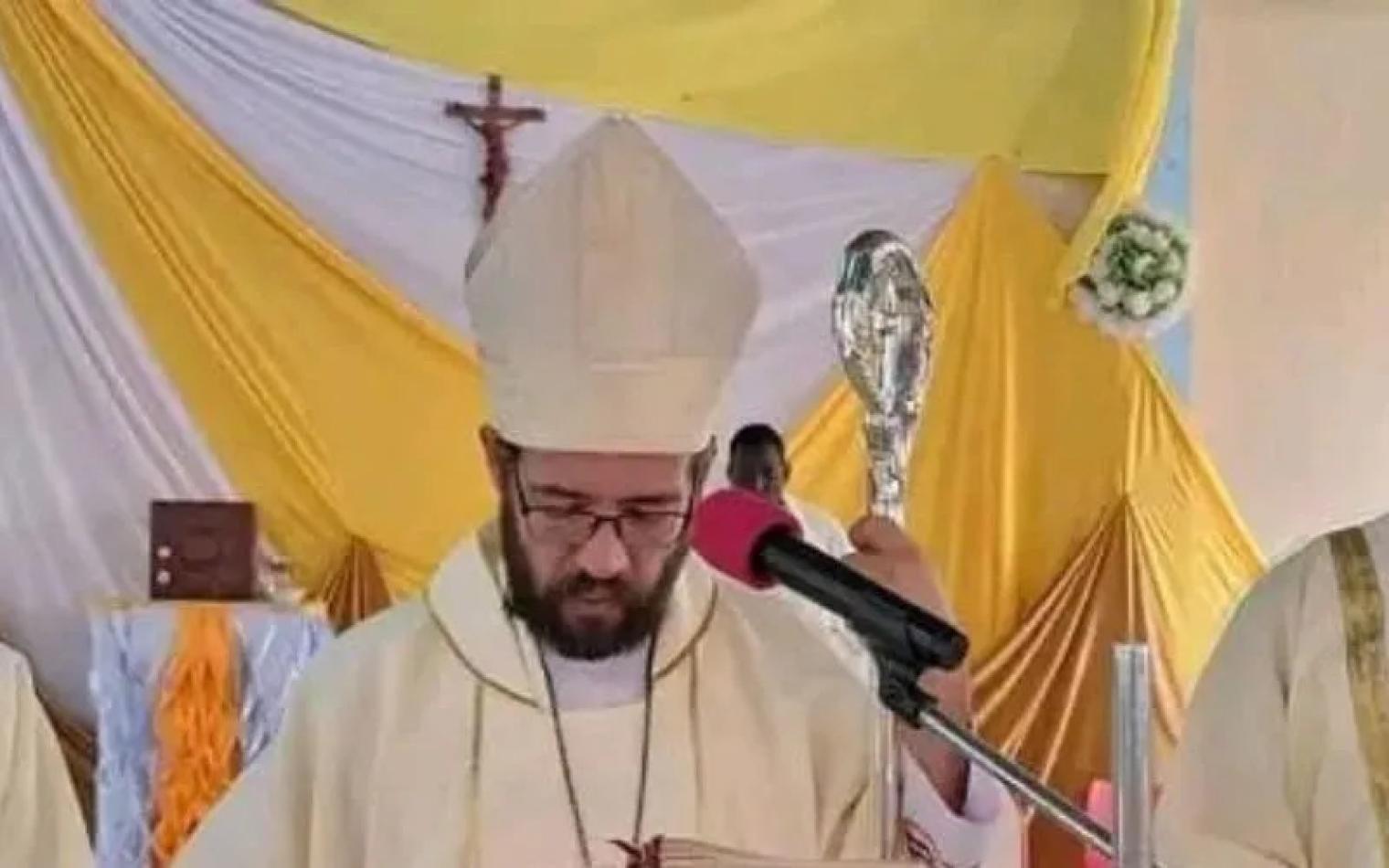Daniel Comboni
Missionários Combonianos
Área institucional
Outros links
Newsletter
Monday, November 24, 2025
Bishop Christian Carlassare of the Catholic Diocese of Bentiu in South Sudan has urged the newly ordained Deacons to make service their foremost priority, emphasizing that service lies at the heart of the Diaconal Ministry. In his homily on the Solemnity of Christ the King during the Diaconate Ordination of Seminarians John Majak and Angelo Chirit in the country’s Catholic Diocese of Rumbek, Bishop Carlassare reflected on the job description of a Deacon. [Silas Isenjia – ACI Africa]
“In the Church, no one has the right to wear a crown unless they first know how to carry a basin of water and a towel. Because our king is the one who bent down before his disciples and washed their feet from the dust of the journey,” he said in his homily on Sunday, November 23, adding, “And this is the scandalous heart of the diaconal ministry.”
The pioneer Local Ordinary of the South Sudanese Diocese that Pope Francis erected in July 2024, who is also the Apostolic Administrator of Rumbek Diocese, added, “The Deacon is not the one who stands above others, but the one who kneels first. He is not the one who speaks the loudest, but the one who listens longest.”
He further explained that a Deacon is “not the one who occupies places of honor, but the one who goes where others do not want to go, in solidarity with the most vulnerable people; the one who touches the wounds others prefer to ignore; who sees in every person Christ himself, and so carries no grudge, no segregation for anyone, he forgives and brings communion in the community.”
Bishop Carlassare lamented that contemporary society often measures power by the number of people who bow before an individual, applaud, or kiss their hands, adding that a Deacon must rise above such displays of admiration. “The Deacon stands as a living contradiction: the throne of Jesus was not made of gold, but of wood, and made it into a cross rather than a sofa to rest on. Jesus was not surrounded by applause, but by mockery and abandonment,” the Italian-born member of the Comboni Missionaries (MCCJ) said. Instead, Bishop Carlassare said, Jesus “showed his power not by saving himself, but by saving others; not by commanding but by offering; not by accumulating but by sharing and giving his life to the last drop.”
In his homily, the Catholic Church leader, who started his Priestly Ministry in South Sudan’s Catholic Diocese of Malakal following his ordination in September 2004, further explained the significance of the Diaconate Ministry to the Church, saying that “It is the ministry that keeps the Church alive, honest and true.”
He emphasized, “If we forget service, we forget Jesus. If we seek privileges, we betray the Gospel. If we use the Church for personal gain, we just follow our shadow. And your shadow will lead you to be lost somewhere.”
He encouraged the two newly ordained Deacons to follow Jesus rather than their own plans or ambitions, adding, “Follow Him with His spirit of service and self-giving, and you will discover true joy and fulfillment.”
“Your ministry is not a function. It is your identity because a function is something you do, but your identity is who you are,” he said, and added, “A function can be fulfilled without conversion, but your identity instead must be shaped by the Gospel.”
The Comboni Missionary went on to explain, “a function ends when the task is done, but your identity remains in every instant of your life, in any place you are. You will witness Christ anywhere, anytime, with any people you are with.”
He warned the two that the Deaconate is not about tasks, but about identity, and “not about performing service but about becoming service. You are transitional deacons, but you are still called to live any ministry/service in the church with the spirit of deacons.”
The Local Ordinary of Bentiu Diocese said that Deacons show that the Church is never more royal than when she serves, and never more authoritative than when she listens. “The church is never richer than when she gives up all earthly riches and gives herself at the service of the poor,” he said in his November 23 homily on the Solemnity of Christ the King.
Silas Isenjia – ACI Africa




